- Home
- Joel Goldman
The Dead Man jd-3 Page 7
The Dead Man jd-3 Read online
Page 7
If I were wrong, what I had learned in twenty-eight years as an FBI agent would prove true once again. While there are more unintended consequences than conspiracies, more careless acts than crimes, and more people with good intentions than evil motives, crooks, even the ones you love, will never cease to amaze and, too often, break your heart.
Lucy was right that Ammara Iverson would cut me out of her investigation. I couldn't allow Ammara or anyone else to pass final judgment on my daughter and would fight to save whatever was left of her memory. Milo Harper was afraid that dreams could kill. I was focused on the other side of the equation, keeping my dreams of Wendy alive.
Sherry Fritzshall's resentment toward me was palpable. She had instructed Nancy to hold me in the lobby until she arrived and then made certain that Leonard and Anne from HR tied me to my desk until she could hamstring me with a day of interviews, tossing in lunch with her and a meeting with the boss in case I didn't know what to with my free time. Tomorrow, she'd probably ask me to take inventory of the office supplies, promising me a key to the men's room if I found the missing paperclips.
I would meet with the project directors but not on an assembly line that guaranteed canned responses regardless of whether their answers matched my questions. Interviews were much more productive when the subject hadn't spent the day rehearsing.
I needed to get a feel for the institute on my own without being fed forms, schedules, and histories. The best way to do that was to walk the halls and listen to the chatter that bubbles up everywhere there are people who are convinced they are underpaid and underappreciated, which describes everyplace with a clock that gets punched twice a day.
I stepped onto the elevator, activating the buttons by swiping my key card across a sensor. No card, no access. It was a basic security measure to prevent the kind of walk-in traffic that liked to wander hallways looking for unguarded purses and laptops or assault women in the bathroom. I punched the button for the fifth floor, a random start.
Office buildings are office buildings. There are only so many windows, corners, and cubicles. Toss in rooms for files, breaks, supplies, conferences, and toilets and they all look alike after a while. This one also had labs, libraries, auditoriums, and lots of locked doors. I decided not to use my master key card during business hours since barging in unannounced wouldn't win me any friends.
I stuck to the open areas occupied by support staff and the break rooms, practicing my skills as a conversation stopper. People acknowledged me with a nod; a few stealing glances at my ID card to catch my name and waiting until I had passed before resuming their conversations. They were not a welcoming bunch though they appeared intent on doing their jobs and mindful that what they were doing was important enough to be protected from strangers like me.
Less than an hour after I started, I was back at Leonard's desk. He was sorting through mail.
"Tear yourself away?" I asked him.
"Sure thing."
He had one of those perpetual eager, ear-to-ear smiles, the kind guaranteed to exceed expectations on his annual review. He followed me into my office. I booted up my computer and entered my user ID and password.
"What's online here?"
"Everything."
"Meaning what?"
"Depending on your level of authorization, you can access every personnel file, every research project, every everything. You just have to know what you're looking for. What are you interested in?"
"I want to read up on the institute's research projects."
"Here, let me show you." He walked me through a quick tutorial, showing me how to access information. "As you go deeper into certain files, you'll be asked to reenter your user ID and password to make certain you are authorized to see those materials. It's all pretty intuitive."
"Thanks. I'll let you know if I run into trouble. Close the door on your way out."
Leonard was right about the system being intuitive. I found my way into the files of the lucid dreaming project, reentering my user ID and password as the security level increased from file to file. I bypassed the basics explaining the project, giving a cursory glance to Anthony Corliss's biography though I took the time to read Maggie Brennan's.
Her photograph showed a woman with gray hair cut short and straight, no makeup, full cheeks sagging past a down-turned mouth, eyes fixed in the distance-a woman not given to joy. She graduated from Berkeley with a degree in biology and went on to UCLA where she obtained a PhD in neuroscience. A string of academic appointments followed with matching publications in journals and texts, all focused on posttraumatic stress disorder and memory. She joined the Harper Institute a year ago. Her bio began with her college education as if she was born at age eighteen, fully formed. It was a professional resume, stripped of any personal references to family, faith, friends, or a cold murder case.
I followed the prompts to the dream project videos, entering my ID and password to verify that I was authorized to view these materials, clicking the box promising not to copy or otherwise disclose the videos without the prior written consent of the project director or use them for any other purpose other than the use for which they were intended.
The next page was a search page. I entered Tom Delaney's name. A message appeared stating zero matches found. I tried Regina Blair's name and got the same result. I scrolled back to the search page and selected the option to view a list of research subjects to make certain that Delaney's and Blair's names were both included and that I had spelled them correctly. There were ten pages of names, twenty-five names to a page. Delaney's and Blair's names were missing but another name on the third page caught my eye. Walter Enoch.
Chapter Sixteen
Words that are heavy with nothing but trouble: "Tinker to Evers to Chance."
Franklin Pierce Adam's poem about the famous Chicago Cubs infielders and their ability to turn the double play was one of my favorites, these final lines sticking with me. The poem reminded me how round the world was, how one thing inevitably led to another, and that very little in baseball or life happened by chance.
I substituted the names, making it Delaney to Blair to Enoch, wondering whether their deaths were inevitable the moment they volunteered for the dream project or whether their shared fate was nothing more than serendipity, the circle widening from Walter Enoch to capture Wendy and me. The first line of the poem echoed in my head as I stared at Walter's name on my computer screen.
These are the saddest of possible words.
My cell phone rang before I could open Enoch's video. I recognized the number displayed on my screen even though I hadn't received a call from the FBI's Kansas City regional office since I left the Bureau.
"Jack, it's Ammara."
A sharp flutter of shakes swept through my neck and head.
"What's up?"
"We'd like you to come in."
The FBI gives answers over the phone but asks questions in person. Invitations made in the first-person plural come from people who give orders to agents like Ammara. I could ask her who wanted to talk to me and why but I knew her answers wouldn't tell me anything I didn't already know.
It was an article of faith in the Bureau that Wendy had stolen the drug ring's money. A few hard-liners suspected that she had reached out to me before her death and that I had covered for her, maybe even helping her hide the money. They were waiting for me to buy a car, boat, or house I couldn't afford on my disability payments. It had been less than seventy-two hours since Ammara had promised to tell me what she could. Her call reconfirmed that the Bureau had convicted Wendy and named me as an unindicted coconspirator.
"I don't have any wheels. I loaned my car to Lucy Trent."
"We'll send someone. Are you at home?"
"No. I'm at the Harper Institute of the Mind."
"Why? Have you lost yours?"
Ammara's sense of humor made this easier on our friendship but not a lot easier.
"I'm considering the option."
"Wait until we'r
e done with you. I'll have a car there in ten minutes."
I didn't know when I would get back to the computer. Tom Delaney's and Regina Blair's video files were gone. I was certain that Anthony Corliss and Maggie Brennan would have an explanation for what happened to their files and that it might even be true.
Not willing to take a chance with Walter Enoch's file, I downloaded it to the desktop and again to the flash drive I carried on my key ring. My exercise in belt-andsuspenders backup reminded me that tics and obsessive-compulsive disorder sometimes ran together, which wasn't always a bad thing.
"Where you headed?" Leonard asked before I could clear his desk.
"Out."
He nodded, his grin locked in place as if a plastic surgeon had hit a nerve, leaving his face happily paralyzed.
"Out. Got it. Will you be back in time for your lunch with Sherry?"
I glanced at my watch. She was expecting me in an hour. "Tell her not to wait up."
"She'll be pissed, big time, if you don't show."
"Promises, promises."
Turnover was a fact of life in any FBI office. In the months I'd been gone, many of the agents I'd worked with had been reassigned to other parts of the country. Intergovernmental task forces staffed by FBI agents and personnel from other law enforcement agencies that worked out of the regional office had been shut down, restaffed, or replaced by other task forces, introducing another wave of new faces. Support staff had undergone normal attrition. All the personnel changes made the place feel foreign even if the walls were familiar.
Knowing that I couldn't go anywhere without an escort confirmed that I was an outsider.
The regional office sat on high ground on the southwest edge of downtown. Ammara led me to a conference room from which I could see the squiggly steel sculptures atop Bartle Hall and, east of them, the reflective glass walls of the Sprint Center where Garth Brooks had performed for eight straight nights when it opened. In between was the Power amp; Light entertainment district, the heart of Kansas City's revitalized downtown.
She introduced me to the people who had issued my invitation.
"James Kent and Everett Dolan, say hello to Jack Davis."
Hands were shaken, smiles exchanged, all of them cold. Everyone stood.
"Agents Kent and Dolan are from DC," Ammara explained. "They're following up on Wendy's case."
She didn't have to give me their resumes. I'd known guys like them. Kent and Dolan were lifers. Their hair was a gray brush cut, their guts were soft, and their eyes were hard. They were tailors, first cousins to the guys who followed behind the elephants at the circus, carrying shovels. Their job was to wrap up the loose ends the FBI couldn't stand to leave hanging, especially when the threads were wrapped around their own people.
"Sorry about your loss," Dolan said.
I nodded. "What can I do for you?"
"Have a seat."
"I'm good."
Kent tossed Wendy's envelope onto the table, the plastic evidence bag sliding across the smooth surface. "How many other letters did you receive from your daughter after she disappeared?"
"None. And I didn't receive this one either."
"But you did hear from her before she died." It was Dolan again.
I'd gone through this when Wendy disappeared and again after she died. These two were no better or worse than their predecessors but repetition hadn't dulled the ache.
"About three months after she disappeared, I got an e-mail from her. Out of the blue. It was one of those electronic birthday cards. I traced it back to a computer at the New York City Public Library. I went to New York and found her just after she overdosed. She died in my arms. You know all that because it's in the file and I'm betting you guys can read. So what do you want?"
"You talk to any of her friends when you were in New York?"
This time it was Kent. If I closed my eyes, I couldn't tell them apart.
"No. All I did was bring her home. I didn't know she had any friends. If she did, they didn't come to the funeral."
"She ever mention someone named Jessie Mercado?" Kent asked.
"She never mentioned anyone. She just died. That's all."
Dolan and Kent looked at each other, then at Ammara, then at me. Ammara broke the silence.
"We found Jessie Mercado's fingerprints on Wendy's envelope. She's a small-time drug dealer in New York. Turns out she and Wendy were friends."
"You know what good friends junkies and dealers are," Dolan said. He grinned, begging me to take the swing we both knew I wanted to take.
"Yeah. Kind of like you and Kent."
Dolan took a step toward me but Kent grabbed his arm. "You've got no call," he said to his partner. "And, neither do you," he said, letting me know which one was the good cop and which one was the bad cop.
I ignored both of them. "What did Jessie Mercado say about the envelope?" I asked Ammara.
"She said that Wendy used to crash at her place. A month or so ago, she was moving out and found the envelope and some of Wendy's personal effects while she was packing. She sold what she could and put the envelope in the mail. Thought she was doing you a favor. Said she never opened it and didn't know what was inside it. You remember that we gathered Wendy's DNA samples from her apartment?"
"Yeah. They match the saliva on the envelope?"
"All the way," Ammara said. "We got one decent print too. Jessie Mercado's story holds up."
"So we know how the letter got here," Kent said. "What we need is your help figuring out what was in it."
"How would I know what was in it?"
"Why do you suppose it was the one piece of stolen mail the dead mailman opened?" It was Dolan.
"Who says the mailman opened it?" I asked.
"You're saying someone else was there, opened the envelope, took whatever was inside and left it on the dead guy?" Kent asked.
"I'm saying you don't know what happened so until you do, don't act like you've got it figured out. How did Walter Enoch die?"
"The coroner says he had pretty bad asthma. Says his lungs went into spasm causing him to suffocate and have a heart attack," Dolan said.
"The coroner have any idea what caused the spasm?" I asked.
"Yeah," Dolan said. "Someone put their hand over his mouth and nose so he couldn't breathe. Enoch fought back hard enough that he broke his nose. Makes me think the killer was looking for whatever it was your daughter mailed to you."
"Which puts you right where you've been from the beginning," Dolan said
"Where's that?" I asked.
"In the middle," Dolan said. "Now, let me see you shake."
Wendy was ten. It had been a year since we'd lost Kevin. The death of a child is a tragedy but losing a child the way we lost Kevin was an unspeakable tragedy. So, to our everlasting sorrow, Joy and I didn't speak of it, especially around or to Wendy.
She carried the knowledge of her brother's abduction, abuse, and murder inside her until it began to erupt in ways large and small. She didn't eat or she ate too much. She cried too often or not at all. She lashed out at her teachers or she didn't speak. And she shook, trembling like she would come apart.
We made the rounds with pediatricians, psychologists, and psychiatrists, one assuring us that it would pass, another softly encouraging her to release her bottled emotions. Now, let me see you shake, he told her, but she refused to perform for him, claiming her pain as her own. I never loved her more than at that moment.
"You'll have to do better than that," I said.
Chapter Seventeen
"Don't let those guys get to you," Ammara said, as she drove me back to the institute.
"I hear you. They're just doing their job the only way they know how."
"Exactly my point," she said. "DC won't let this one go, you know that, Jack, especially when something like Wendy's envelope shows up. They're going to keep coming at you until they find that money."
We were stopped at a traffic light at Summit and Southwest Boulevard in t
he heart of the west side Hispanic neighborhood where Mexican restaurants and bakeries held sway.
I looked at her. "Why not let it go? Why not leave Wendy and me alone? It's not like they are going to return the money to the people who bought the drugs even if they do find it. They'll deposit it in the Treasury and the growth in the national debt will slow down for a nanosecond."
"You know why. It's the only way the Bureau can remove the stain. One of our people did this."
"Colby Hanson wasn't the only one."
"Yes, but he was the only one who was one of ours."
The light changed. We made our way south on Summit, snaking onto the Southwest Traffic Way.
"Not according to Dolan and Kent. They think I know what happened to the money. Hell, they probably want me for killing Walter Enoch."
Ammara dipped her chin and laid on the horn at a driver who shifted into our lane, though his car was two-lengths in front of ours.
"Assholes," she said, pounding on the steering wheel, refusing to look at me.
The other driver was alone, his offense imaginary and not warranting her outburst. The assholes she was cursing were Dolan and Kent, the message clear. I wasn't just in the middle. I was in their crosshairs.
As crazy as it was, it made more sense than my attempt to link Walter Enoch's murder to the deaths of Tom Delaney and Regina Blair. The police had investigated their deaths and found no evidence of homicide. The only thing the three of them had in common was their participation in the dream project, something they shared with two hundred and forty-seven other people.
My daughter had been in love with a rogue FBI agent who was involved in a drug ring. She disappeared when we took the operation down and later reached out to me in a way designed to keep her whereabouts secret. I found her, as she knew I would, though not in time. Every FBI agent I ever knew would believe that she told me what happened to the money before she died. If Wendy hadn't been my daughter, I would have joined the same church.
I wouldn't take the odds that Wendy had mailed me a confession and treasure map but neither would I bet against it. There were several possible explanations why her envelope was the one piece of stolen mail that was found opened. The seal was old and may have given way. Walter Enoch could have decided after all those years of hoarding the mail to start reading it and chose Wendy's as his first. I knew that neither of these was likely.

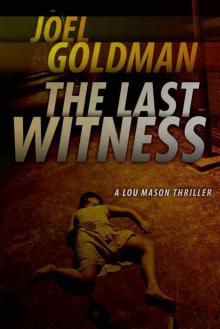 The last witness lm-2
The last witness lm-2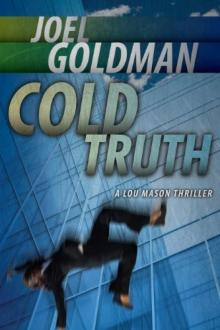 Cold Truth
Cold Truth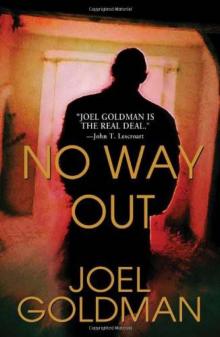 No Way Out (2010)
No Way Out (2010)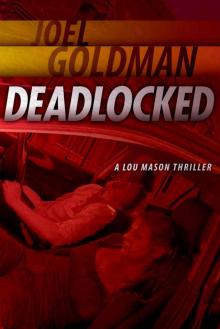 Deadlocked (Lou Mason Thrillers)
Deadlocked (Lou Mason Thrillers)![[Lou Mason 01.0] Motion to Kill Read online](http://i1.bookreadfree.com/i1/03/24/lou_mason_01_0_motion_to_kill_preview.jpg) [Lou Mason 01.0] Motion to Kill
[Lou Mason 01.0] Motion to Kill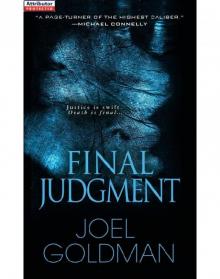 Final Judgment
Final Judgment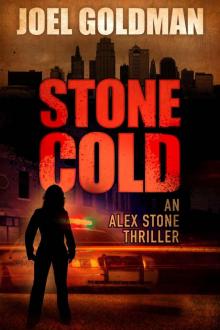 Stone Cold
Stone Cold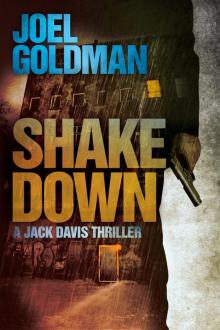 Shakedown
Shakedown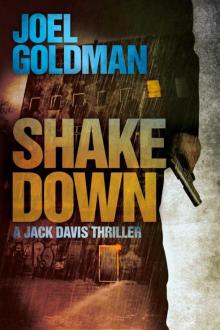 Shakedown jd-1
Shakedown jd-1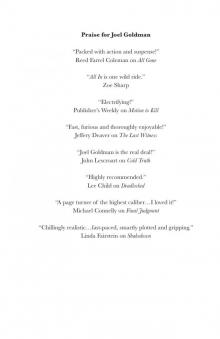 All Gone
All Gone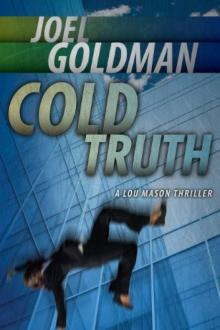 Cold truth lm-3
Cold truth lm-3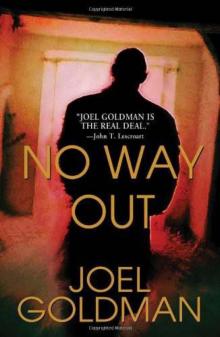 No way out jd-2
No way out jd-2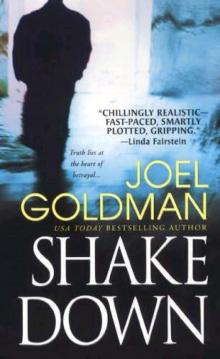 Jack Davis Mystery - 01 - Shakedown
Jack Davis Mystery - 01 - Shakedown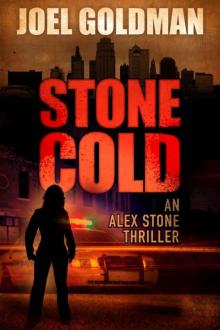 Stone Cold as-1
Stone Cold as-1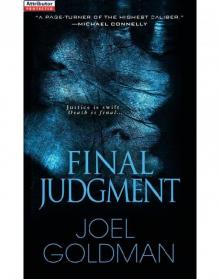 Final judgment lm-5
Final judgment lm-5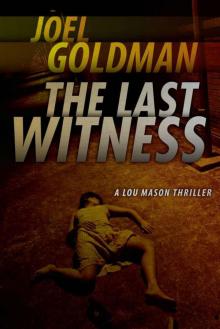 Lou Mason Mystery - 02 - The Last Witness
Lou Mason Mystery - 02 - The Last Witness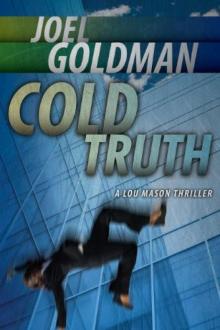 Lou Mason Mystery 03-Cold Truth
Lou Mason Mystery 03-Cold Truth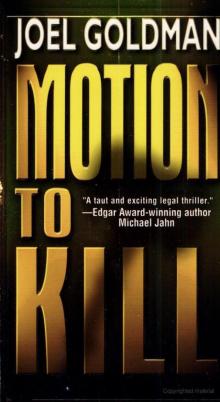 Motion to Kill
Motion to Kill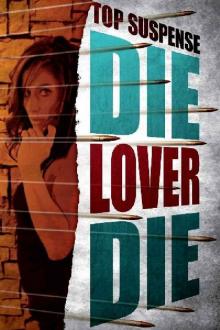 Die, Lover, Die!
Die, Lover, Die!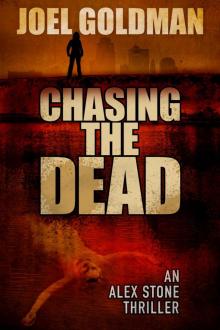 Chasing The Dead (An Alex Stone Thriller)
Chasing The Dead (An Alex Stone Thriller)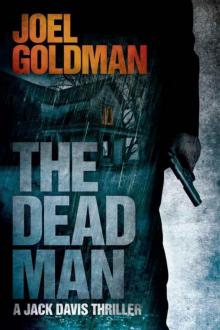 The Dead Man
The Dead Man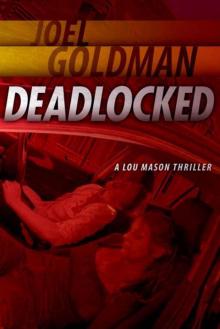 Deadlocked lm-4
Deadlocked lm-4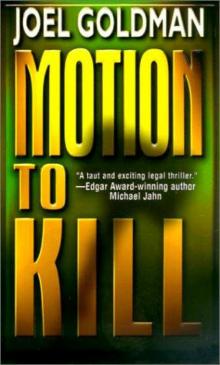 Lou Mason Mystery - 01 - Motion to Kill
Lou Mason Mystery - 01 - Motion to Kill Die, lover, die
Die, lover, die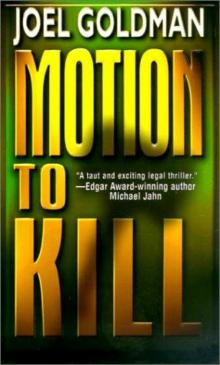 Motion to Kill lm-1
Motion to Kill lm-1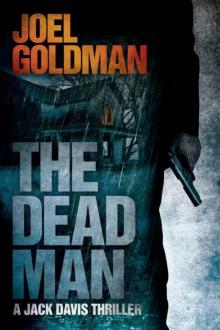 The Dead Man jd-3
The Dead Man jd-3